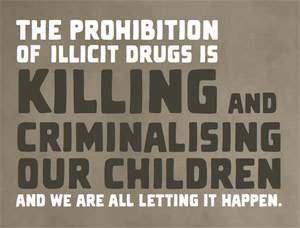Radley Balko has an excellent article at the Huffington Post: Illinois Traffic Stop Of Star Trek Fans Raises Concerns About Drug Searches, Police Dogs, Bad Cops
The whole thing is a must-read and it explores all the issues in the title very well, through the lens of one particular traffic stop.
Radley spends a fair time in the piece talking about the disaster of allowing drug dog alerts to be the basis for a search, and even has a side-bar following the success rate of one particular dog.
As regular readers know, I think that the Supreme Court decision in Caballes v. Illinois was one of the worst decisions the court has made in recent years.
The Supreme Court will shortly have an opportunity to re-visit Caballes. They’ve agreed to hear arguments in the case of Florida v. Harris, where the Florida Supreme Court ruled that it wasn’t enough to say that a drug dog was certified, there had to be some ongoing proof of its abilities.
I’m not sure if the Supremes are accepting the case because they want a crack at fixing Caballes, or because they want to overrule the Florida Supreme Court. At least there will be another discussion and now Justice Stevens (who authored the Caballes decision) is gone.
Basically, the Florida Supremes said that there should be some kind of standard of reliability if drug dogs are going to be the reason for a search.
The government’s position is that as long as the dog receives some kind of certification of training (with no particular standard for that training or certification required), then that’s all that’s needed. And they say there should be no need to track field accuracy. They simply claim that any time a dog gives a false positive in the field it’s because there used to be drugs in that car (impossible to prove one way or the other). And, of course, false negatives are never known.
It’s a convenient position – no accountability whatsoever.
We’ll see if the Supremes are willing to listen to facts and logic, and whether the volumes of new evidence that has surfaced since Caballes makes a difference.
Scott Henson at Grits for Breakfast has a good piece about the Florida v. Harris opinion.
![]() When the UN Won’t Condemn Torture You Know Something’s Very Wrong by Damon Barrett. INCB continues to run amok.
When the UN Won’t Condemn Torture You Know Something’s Very Wrong by Damon Barrett. INCB continues to run amok.![]() Arizona governor signs law to bar medical marijuana at colleges. Seems a shame that those who need it for medical purposes will be the only ones not smoking pot in college.
Arizona governor signs law to bar medical marijuana at colleges. Seems a shame that those who need it for medical purposes will be the only ones not smoking pot in college.![]() Media coverage list of the Australia21 report.
Media coverage list of the Australia21 report.![]() All right. Bend over – you might be trying to smuggle in the Constitution
All right. Bend over – you might be trying to smuggle in the Constitution
 An excellent new report from Australia 21 Roundtable:
An excellent new report from Australia 21 Roundtable: 